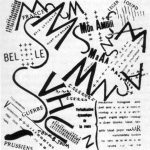Continuous crisis: Historical action and passion in Antonio Negri’s Insurgencies
The truism that history is written by (or, rather, on behalf of) conquerors is more respectable now than ever before among Sunday supplement intellectuals. The reason, where it goes beyond a simple resentful wish to damn historical analysis as ʻirrelevantʼ, seems to be that victorsʼ history is easily opposed to that of victims, that ill-defined […]





